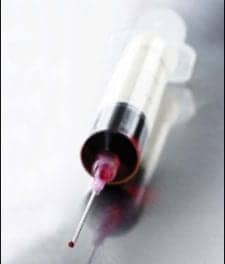Beckman Coulter Diagnostics, Brea, Calif, has announced FDA premarket notification (510(k)) clearance and commercial release of its new Access TSH (3rd international standard [IS]) assay for use with the Access family of immunoassay systems. The Access TSH (3rd IS) assay enhances Beckman Coulter’s thyroid assay menu, which includes a full panel of thyroid tests that aid in the diagnosis of thyroid function. The assay is the next generation of the Access HyperSensitive hTSH and Access Fast hTSH assays for the quantitative determination of human thyroid stimulating hormone (TSH).
The assay is designed to offer confidence in patient results through standardization to the World Health Organization’s 3rd IS for human TSH (IRP 81/565). A larger reagent pack size of 100 tests per pack and 200 tests per kit seeks to improve laboratory efficiency. The assay range supports measuring patient samples as low as 0.01 ?iu/ml.
“FDA clearance and commercialization of our new Access TSH (3rd IS) assay offers laboratories a sensitive and accurate tool for diagnosis and monitoring of thyroid disease,” says John Blackwood, senior vice president of the chemistry and immunoassay business unit at Beckman Coulter Diagnostics. “A core assay in the thyroid panel, it also empowers laboratories to provide faster, more reliable diagnosis of an underactive or overactive thyroid. The newly designed assay improves time to first result while maintaining assay throughput.”
The assay is a paramagnetic particle, chemiluminescent immunoassay designed for use in Access immunoassay systems to accurately provide quantitative determination of human thyroid stimulating hormone levels in human serum and plasma. The assay is capable of providing third-generation TSH results.1
Additionally, the assay was developed to reduce nonspecific interferences and to deliver robust lot-to-lot performance for reproducible results. The current standards of care require laboratories to use third-generation TSH assays, like the Access assay, as a certain level of sensitivity is necessary for detecting differing degrees of TSH suppression.
For more information, visit Beckman Coulter.
REFERENCE
- WHO International Standard: Thyroid Stimulating Hormone, Human, for Immunoassay [online]. Hertfordshire, UK: National Institute for Biological Standards and Control. Available at: nibsc.org/documents/ifu/81-565.pdf. Accessed November 26, 2016.






